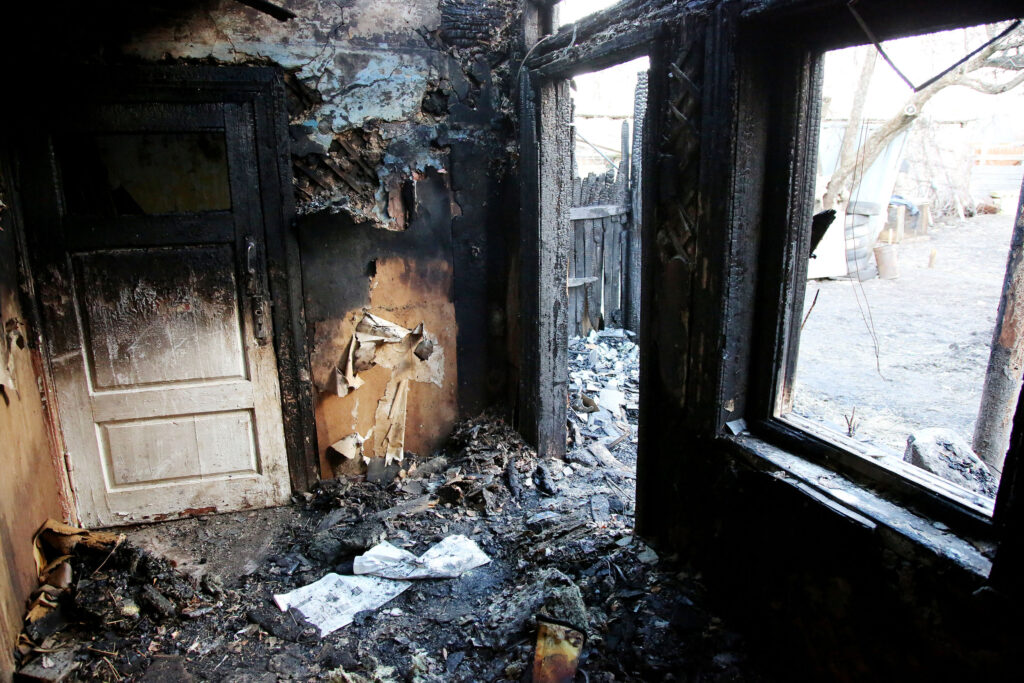
Fire Prevention Week takes place from October 8 – October 14, 2023. Every first week of October, the National Fire Protection Association (NFPA) seeks to raise awareness of the dangers posed by fires and highlight the simple actions people can take in order to avoid burn injuries, like those caused in a Las Vegas house fire.
According to the National Safety Council (NSC) there were approximately 3,800 civilian deaths and 14,700 injuries attributed to fires in 2021. In many cases, these tragedies could have been averted through proper safety practices and prevention.
By knowing the conditions that can lead to fires and learning how to prevent them, you can keep your family safe from burn injuries. To help you understand the different causes of fires and what you can do to prevent them, our Las Vegas injury lawyers have put together this guide to Las Vegas fire prevention.
What Causes Las Vegas House Fires?
A Las Vegas house fire can happen for a wide variety of reasons. Some are caused by freak accidents, while others are caused by highly avoidable circumstances. Common causes of house fires include:
- Flammable substances left near open flames
- Neglected appliances, power cords, or outlets leading to electrical fires
- Chemical spills
- Unattended stovetops
- Improper use of barbecue grills
- Dried leaves and wood
- Lint buildup in clothes dryers
- Defective products
In many cases, fires caused by the above can be easily avoided through proper care and maintenance, as well as common sense. It’s easy to forget simple tasks, such as clearing out the lint filter of a clothes dryer so that the heating element doesn’t light it on fire. However, these simple tasks can go a long way towards Las Vegas fire prevention.
Less commonly, some house fires may occur during wildfire season. Those who live on or near Mount Charleston or other wilderness areas face the highest risk of property damage or injury caused by Southern Nevada wildfires.
How Can I Prevent a House Fire?
As previously mentioned, there are many simple things that you can do that will greatly lower your chances of a Las Vegas house fire. These include:
- Never leaving the stove or range unattended
- Properly storing combustible liquids
- Having an adult monitor barbecue grills, fire pits, or other open flames
- Inspecting outlets, power cords, and electrical appliances for damage regularly
- Disposing of dried leaves and fallen branches properly
These are basic tasks that are easy to take for granted. But by taking a few extra moments to check for potential fire hazards, you can provide tremendous protection from a catastrophic injury and thousands of dollars in personal property damage. Take a look at our fire safety guide for more in-depth recommendations in addition to these Las Vegas fire prevention tips.
Legal Help After Suffering Burn Injuries
Lerner and Rowe Injury Attorneys hopes that you use this information to keep you and your family safe from burn injuries. Unfortunately, some fires are caused by dangerous products or another party’s negligence. In these cases, our team of compassionate and experienced attorneys can help you attain maximum compensation for your injuries. Burns can be traumatic and difficult to cope with, both physically and mentally. Let our skilled Las Vegas injury attorneys take care of your legal needs so that you can focus on rest and recovery.
You can contact Lerner and Rowe Injury Attorneys 24/7. Our representatives are available by phone at 702-877-1500, and our staff can also be reached through the Internet via LiveChat. You may also submit your case information through our secure online form. Consultations are always free and we do not collect any fees unless your case is won.



